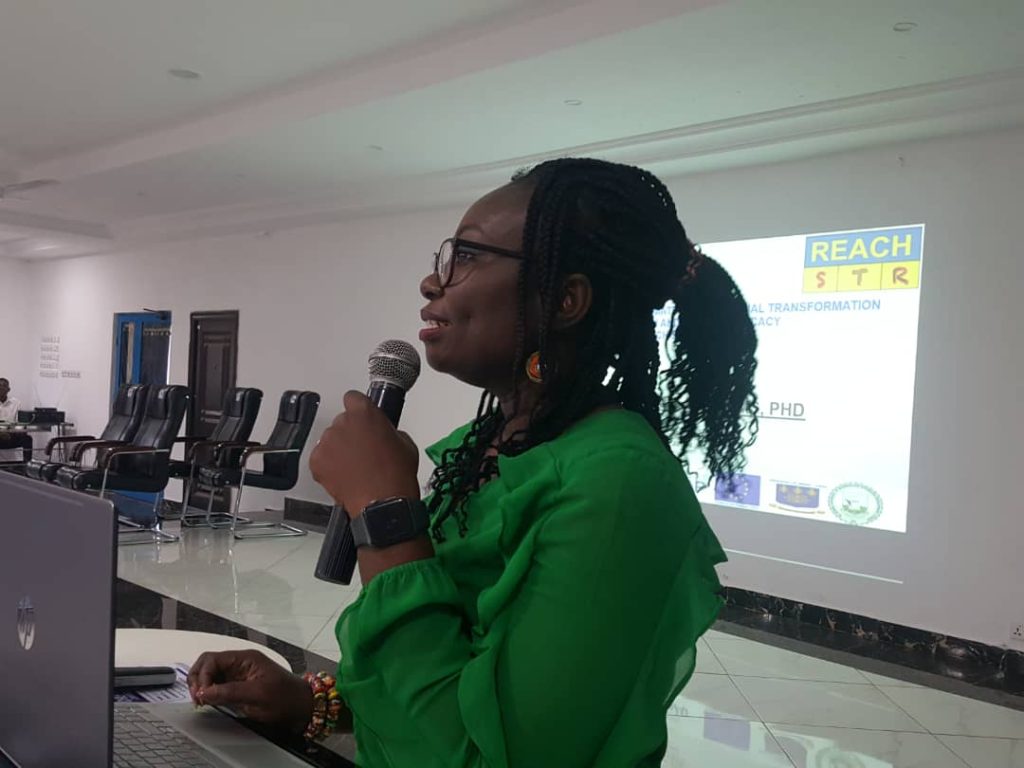By Philip Tengzu
Wa, (UW/R), Oct. 7, GNA – The Resilience Against Climate Change-Social Transformational Research (REACH-STR) study has recommended to stakeholders and development planners to mainstream issues of Social Transformation (ST) into national policy planning and implementation strategies.
The study, which focused on climate change, gender, and migration interventions at the district levels, called for dedicated sources of funding for ST policy programmes to help ensure adequate resources for such interventions.
The research, conducted in seven districts and municipalities in the Upper West and Savannah Regions, showed outstanding programmes development, which impacted positively on climate change, gender, and migration at the local levels.
For instance, the research found out that the Nandom Municipality had 31 programmes in the areas of gender, climate change, and migration being the district with more programmes in those sectors, followed by the Daffiama-Bussie-Issa (DBI) and Sissala East districts with 30 programmes, while the Sawla-Tuna-Kalba (STK) district had the least with 14 programmes.
Dr. Portia Adade Williams, a Research Scientist at the Council for Scientific and Industrial Research’s Science-Technology Policy Research Institute (CSIR-STEPRI), said this in a presentation on the research finding at a validation and dissemination workshop in Wa.
She called for proper monitoring of projects and programmes to assess their effectiveness.
Dr. Williams called for critical consideration of barriers and enablers of policy processes for advocacy to help enhance the mainstreaming of ST into policy-making and implementation.
She observed that in as much as there were programmes and projects on ST, there should be more of such projects to ensure inclusiveness in the national development drive.
Dr. Francis Jarawura, a Lecturer at the SD Dombo University of Business and Integrated Development Studies, noted that though there were laudable policy interventions in the country, the implementation of such policies was a challenge.
“There are some good policies to help us deal with climate change and other environmental factors, unfortunately, some of these policies have been poorly implemented.
“Either they ended up in big documents at the national levels and were poorly mainstreamed at the local level where the actual implementation should be done or they got through to the local level but there was poor funding for us to implement them or where there was funding in some cases but there were poor monitoring and evaluation,” he explained.
He also identified poverty as a major challenge to some farmers in the region in adopting climate adaptation interventions, including planting improved seed varieties and accessing information on climate change.
Dr. Jarawura said farmers’ over-reliance on rain-fed agriculture in the Upper West Region due to the lack of irrigation facilities had also exposed them to the dire impacts of climate change and variability.
“So if we are to deal with climate change in Upper West we have to focus more on irrigation and also on new crop varieties developed in Ghana to fit the taste of the people and the soil and it should be possible for the farmers to re-use the seeds”, he said.
Madam Esther Abaching, the Nandom District Coordinating Director, expressed hope that the outcome of the REACH-STR project would present them with good practices to feed into their project as well as programme planning and implementation processes.

The REACH-STR project sought to investigate ST conditions that promote sustainable and inclusive rural development and adoption of climate change adaptation and mitigation practices among others.
The project implementation was led by the International Water Management Institute, CSIR-STEPRI, SDD UBIDS, and the University of Ghana.
Traditional leaders, District Development Planners, Agricultural Directors, youth and women leaders, the Wa West, Lambussie, Daffiama-Bussie-Issa, and Wa East Districts, Nandom and Sissala East municipalities in the Upper West Region and STK District in the Savannah Region participated in the research and the workshop.
GNA